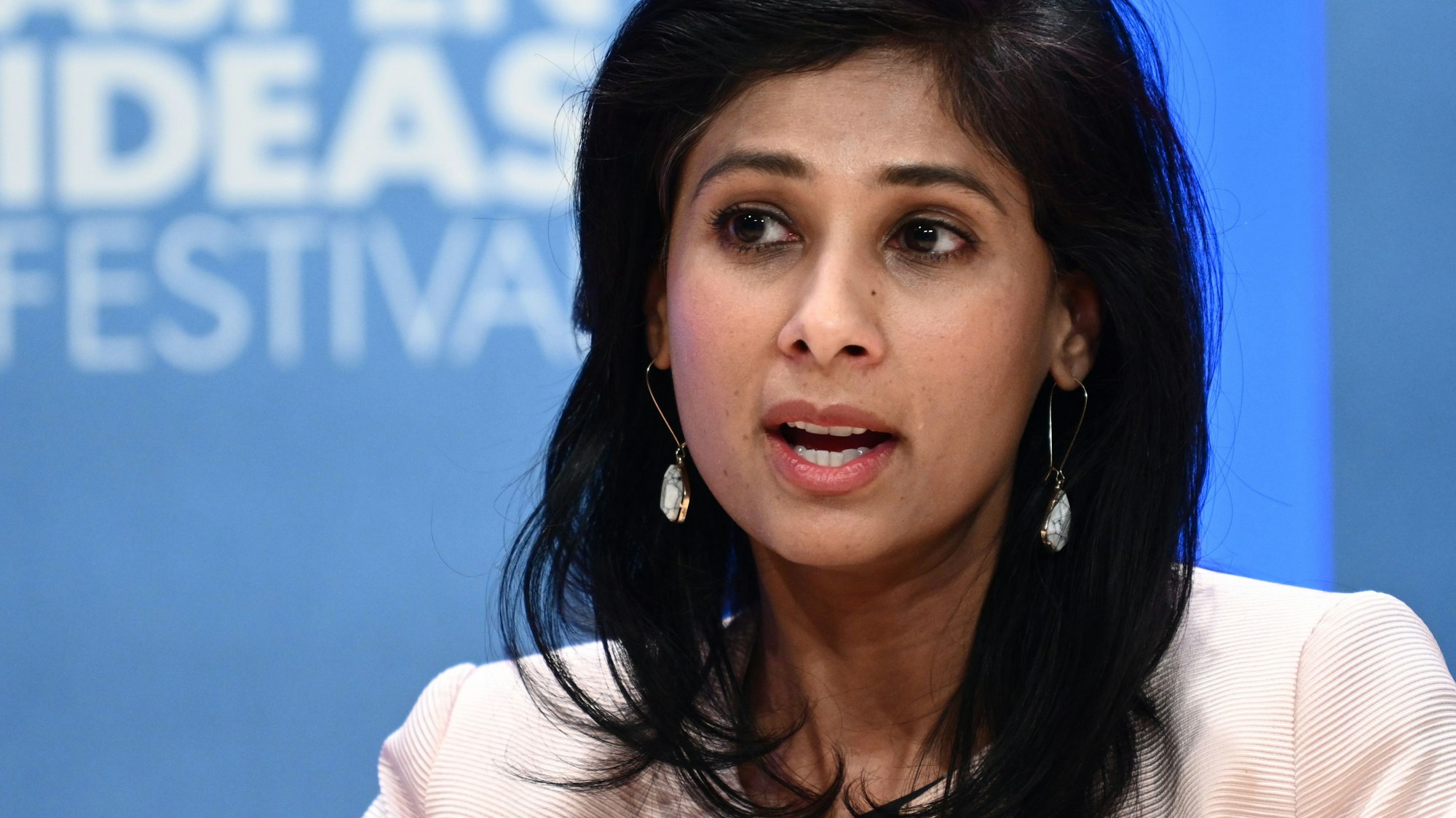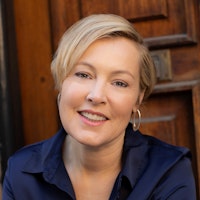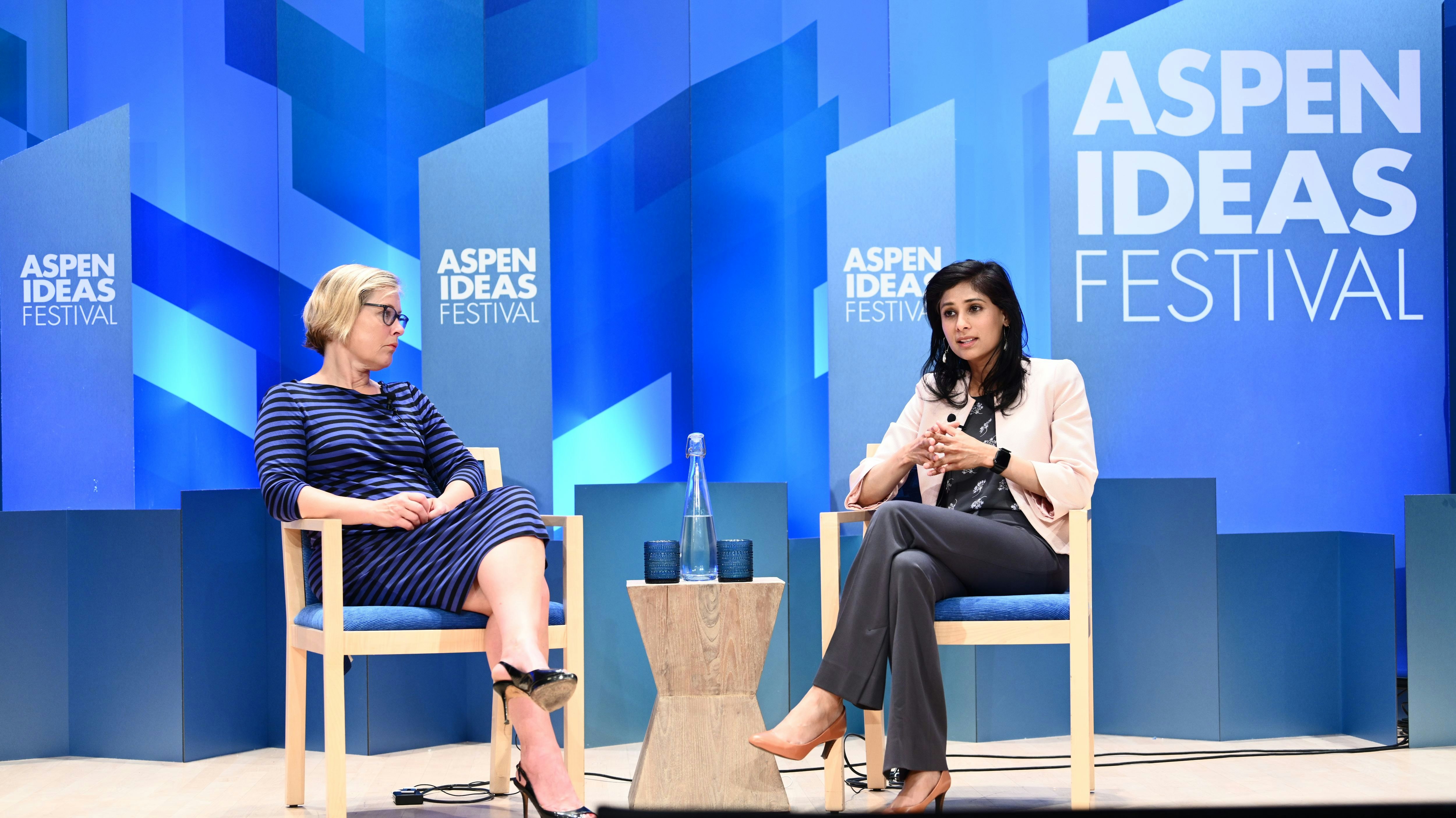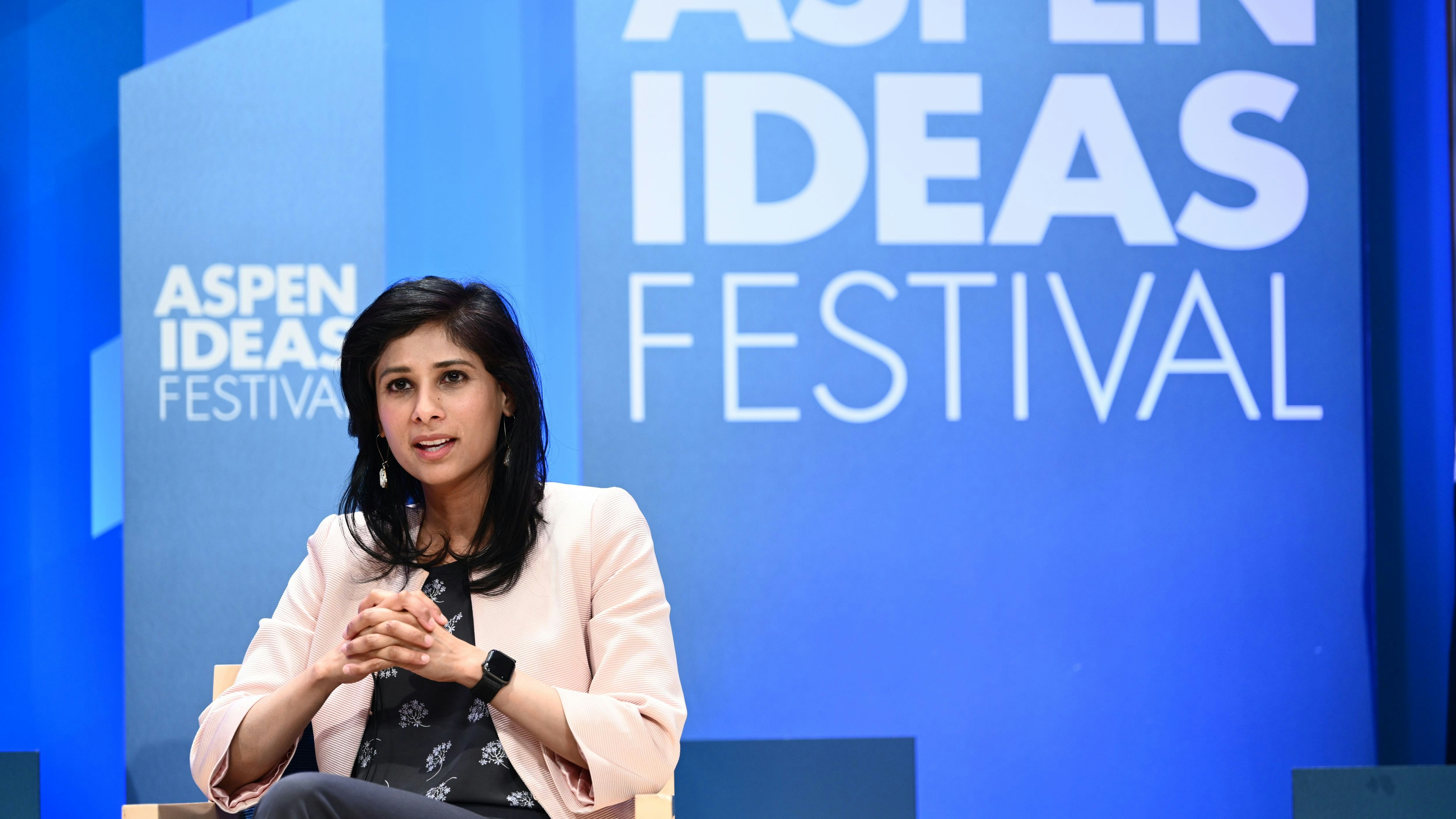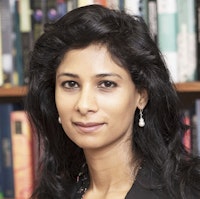
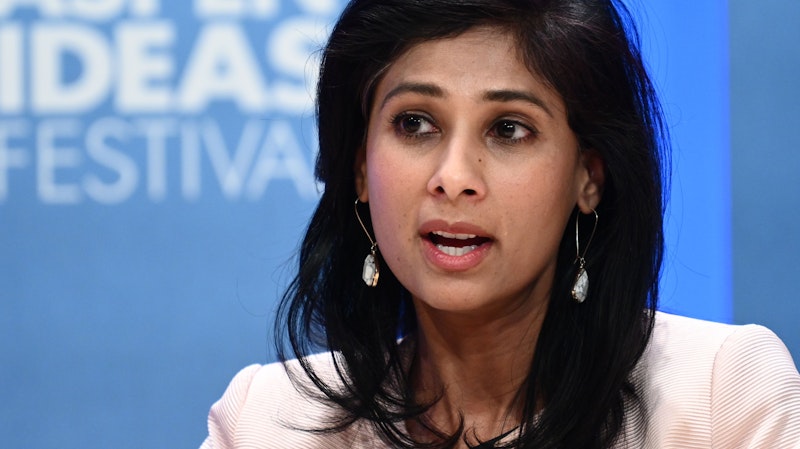
The Global Economy: A Delicate Moment
Setup
In 2018, economic activity was accelerating in almost all regions of the world. One year later, much has changed. The escalation of US-China trade tensions, credit tightening in China, and macroeconomic stress in key G20 economies have all contributed to a weakened global expansion. As the US trade war with China deepens, what are the biggest risks at this delicate moment? Gita Gopinath is chief economist of the International Monetary Fund, that develops and launches a world economic outlook each quarter. She shares her perspectives with Gillian Tett, editor at large for the Financial Times.
Everyone is expecting rate cuts
If you look at the markets, the world is “kind of nuts” right now, says economic journalist Gillian Tett. Bull markets are suggesting a recession but economic indicators, such as consumer spending, show positive signs in countries like America. Tett asked IMF chief economist Gita Gopinath what’s happening.
Gopinath says monetary policy throughout the world is accommodative, especially in big economies. “Everybody is expecting rate cuts,” she says. But, if you look at investment and international trade, “it gives reason for pause.” The first quarter of 2019 was positive for some larger economies like the US, China, and Japan. But, what drove that early-year growth isn’t expected to last. In addition, emerging markets in Latin America and Asia didn’t fare well in early 2019. “So this is a delicate moment with tremendous policy uncertainty,” says Gopinath.
Is America’s growth real or just a “sugar high?”
Unlike other large economies, the United States is experiencing a growth streak, but is it just a sugar high? IMF chief economist Gita Gopinath says a record low unemployment rate and other healthy factors are partially thanks to the fiscal stimulus, led by President Trump’s tax cuts in late 2017. But the US economy is also somewhat closed, says Gopinath. Much of its growth depends on internal demand. The growth streak, though, is beginning to slow.
Big IdeaThe first quarter of 2019 was a bit off the charts in terms of 3.1 percent growth rate. Seeing the more recent indicators, we don’t expect that going forward. There’s going to be a slowing down.Gita Gopinath
Gopinath, speaking in June of 2019, said the IMF wasn’t projecting the US would experience a recession in 2019. However, she’s quick to point out that factors such as an escalating trade war with China could change the outlook.
What do gender and the environment have to do with redefining economics?
The International Monetary Fund is redefining economics to include variables like climate change and gender. The organization has always considered growth, inflation, and productivity in its work, but it’s hard to ignore macro-critical factors like inequality, says Gita Gopinath.
Consideration of additional factors like gender and the environment has little to do, says Gopinath, with the fact that two women are leading the IMF. Though she says her personal experience of growing up in an emerging market, and yes, being a woman, contribute to her perspective of the work.
Does deficit matter?
Some progressive democrats in America are praising the once-fringe idea of Modern Monetary Theory, or MMT. The Theory, according to Bloomberg, suggests that if a country has its own currency and debt, it can print more money to pay interest. Gita Gopinath points to history to show this approach doesn’t pay off. “If you look at countries that have tried that, it has not been without a cost. It has almost always been inflationary and put countries in a crisis-like situation.”
Why It Matters
Learn More
Additional Information
Resources
Explore More
World


Using the law to charge and imprison political opponents is a favorite tactic of dictators the world over. In an age of growing global authoritarianism, unscrupulous rulers ar...
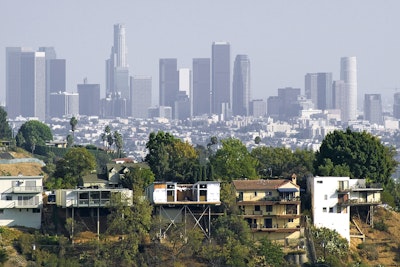
Capitalism has delivered prosperity for many, but not for all. Disparities according to gender, race, and geography have left millions behind, while rising concentrations of w...


The quest for work-life balance is never ending for many of us. The advice in this talk from the 2023 Aspen Ideas Festival still holds a lot of relevance, so we’re bringing it...


While the workforce continues to evolve in response to economic shifts and technological advancements, one thing is certain — the traditional blueprints for education and the...

Entrepreneurs view the world differently. Where others see challenges, they see opportunities. They’re a group of self-starters and strivers with the courage to take big risks...


Advances in medicine and healthy living mean that more and more people will live to be 100. But just because their bodies can last doesn’t mean their bank accounts will keep u...

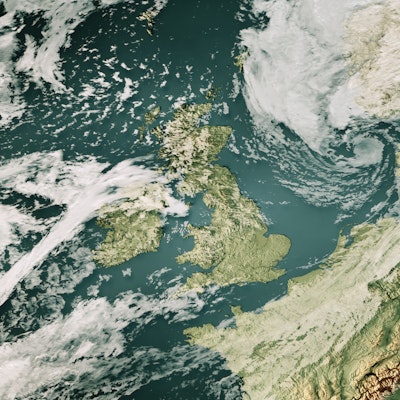
Scholars are still uncovering information about Britain’s involvement in the transatlantic slave trade and its era of slavery, piecing together how the wealth generated from t...

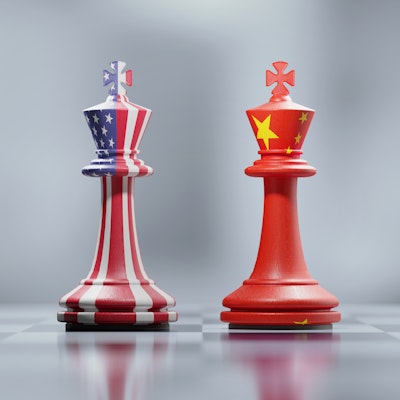
Relations between the United States and China have become increasingly tense over the past few years. Trade wars have escalated, and U.S. national security experts are bracing...

The United States spends $4.3 trillion—almost one fifth of the nation’s GDP—on health care. As the scale of the medical enterprise expands, venture capitalists are pursuing th...
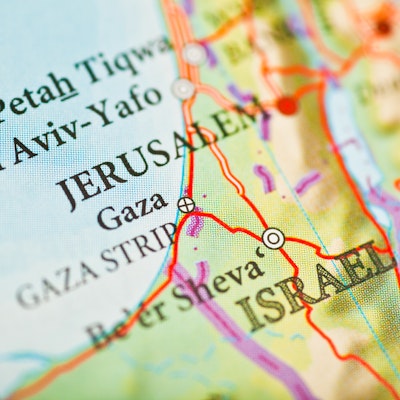
Three people whose lives have been irrevocably changed by the Israel-Palestine conflict share their stories of profound loss, grief and forgiveness.

In a time of growing wealth disparity and changing societal values, can capitalism adapt? How is the economy being transformed by investments in infrastructure, AI, energy, an...


Sizable electorates around the world are flocking to populist candidates who promise power, domination and a return to better times. The global experiment in liberalism seems...
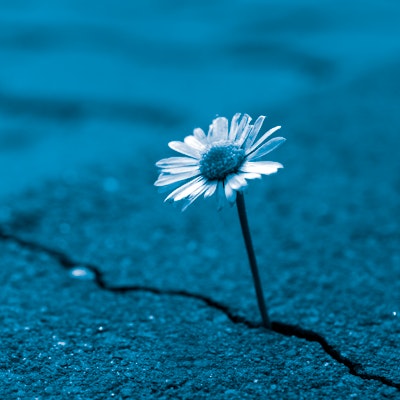
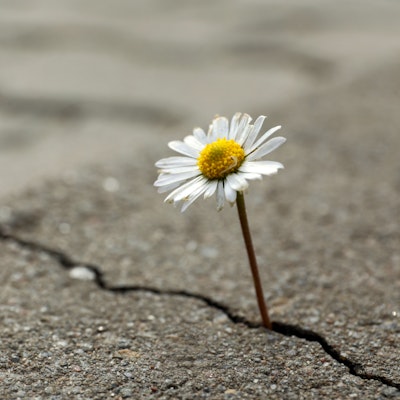
Conflict and suffering can bring out the worst in people, but it can also bring out the best. This is one of the lessons New York Times columnist Nicholas Kristof has learned...

The war in Ukraine continues to reshape European security and global alliances, while the war in Gaza raises urgent questions about humanitarian aid and international interven...


The grim stream of news from the Middle East has been making it more and more difficult to hold onto hope for peace. When and how will the conflict in Gaza end? And could war...
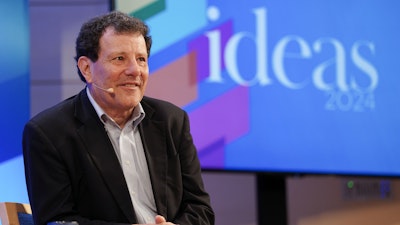
As one of the foremost reporters of his generation, Nicholas Kristof has been witness to century-defining events and atrocities around the world. How has he managed to weaponi...


Women are twice as likely to invest in female-led businesses. Explore the ways women approach wealth building and investment, and how they create opportunities to build financ...
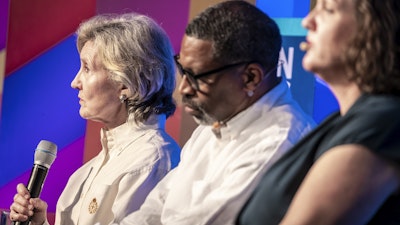
In a time of growing wealth disparity and evolving societal values, can capitalism adapt to sustain the American Dream?

Join Jim Farley as he explores how drivers' needs and priorities are guiding the future of vehicle technology and reshaping our expectations of cars and trucks.


